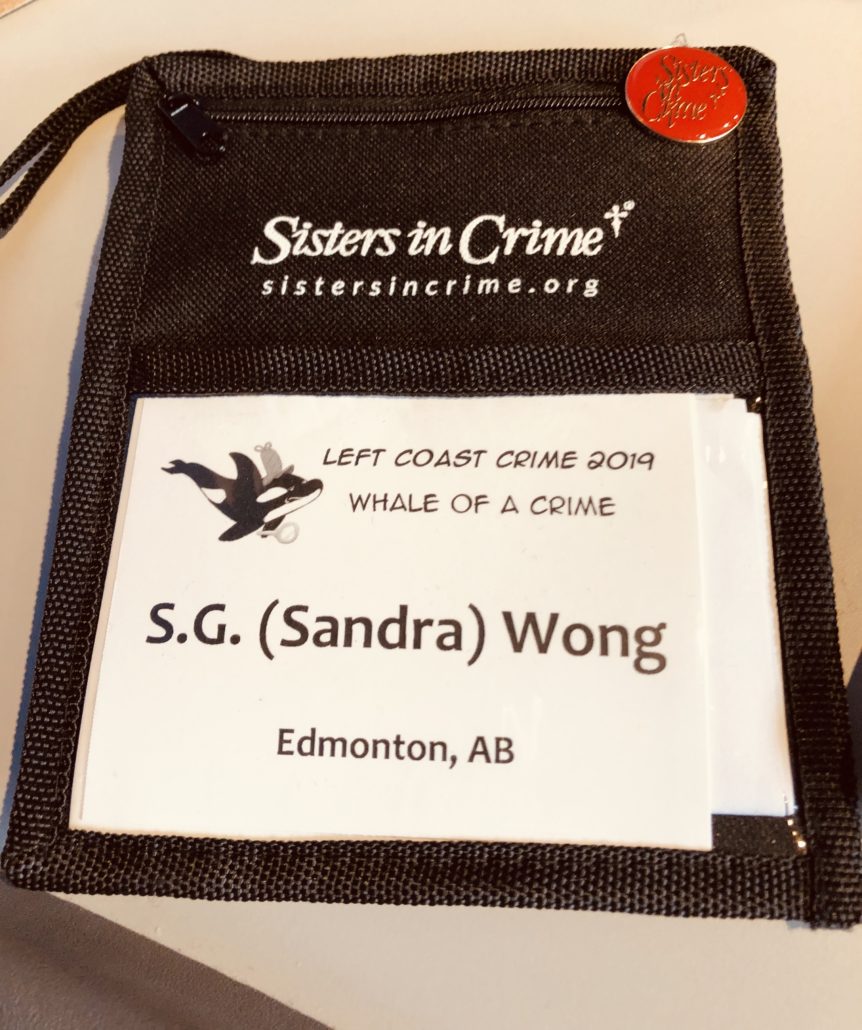I’ve written a few convention recaps in the past and, let’s be honest, they’ve never been very interesting for anyone who hadn’t also attended said convention/festival/conference, etc. I mean, I’d be happy to link to an old one in order to prove my (sad) point, but they all disappeared in the great website re-design of ’18…
So instead of regaling all y’all about how much fun I had at Left Coast Crime 2019 in Vancouver (ie., A LOT thanks to the amazing organizers, the hard-working volunteers, the engaged readers/fans, the fantastic Vancouver-based crime writers, and the friendly, talented new authors I met), I’d like to talk about a couple of underlying themes I picked up on while in attendance.
Spoiler: It’s not all butterflies and rainbows, but there’s hope to be had anyway.
A new normal of uncertainty and upheaval seems to have set in for many mid-career authors. Whether they’d been “orphaned” by exiting editors at their publisher, or been ignored by previously attentive agents, or been unceremoniously shuffled to one side by mergers or buyouts or shutdowns—I heard from at least a handful of mid-career authors that they’re feeling squeezed in myriad ways by the industry. If you follow any industry news or blogs, you already know this: authors with traditional publishers are required to do more for themselves (advocacy, marketing, etc.) in order just to maintain some sense of professional equilibrium; and indie authors are working harder than ever for seemingly less visibility. Still, it was sobering to hear just how many people were having some kind of issue, either with moving their current series forward, or with getting reliable support from their existing publishers or agents, or with negotiating backlist title rights.
I felt bad for each of those authors, and yet, it was strangely heartening to discover that I’m not alone. (In my case, I’ve been struggling with my original publisher and have put my indie series on hold until things are sorted.) I’ve concluded that the publishing industry and its traditional systems aren’t working for many of us. Which is not a huge revelation; there are puh–lenty of blog posts out there describing just such woes.
And not to get stuck in complaining about what, at the end of the day, is a privileged profession, but I also think it’s useful for authors to listen to one another’s experiences of the business side of things. It helps us build rapport and camaraderie. For sure, the path each of us takes as authors is an individual thing, created one choice at a time. But we create those paths within the context of a larger community and that’s what conventions are really great for.
Left Coast Crime 2019 wasn’t my first mystery convention. (That honour goes to Bloody Words XIII in 2014.) Since I started publishing about 6 years ago, I’ve attended literary festivals, multi-genre conventions, huge fan expos, and even a professional writers conference or two. The one common thread running through all of these has been the distinct lack of POC authors/creators in attendance. I’m sad to say this was a second theme I observed at LCC 2019.
And please note: I’m not calling out Left Coast Crime in particular for a lack of inclusion. It’s the industry as a whole. For anyone who follows me on social media, or who’s read my previous blog posts, this comes as no surprise, I’m sure.
But I’m screwing my courage to the sticking place now, in order to tell you a story:
There is a mystery series. It stars as its protagonist a Chinese-Canadian woman who is a lesbian. The first book in the series was published in 2011. The series is written by a white man whom I guess to be in his seventies now. When I have been asked by various people what I think of that series, my reply does not waver: It doesn’t ring true for me. I say that as a Chinese-Canadian woman, not as a lesbian. I’m not qualified to say if the queer elements ring true or not.
The state of publishing is such that this author continues to rake in positive reviews and public appearances, etc. for writing a character he has zero credibility to write. And why? How can his editor(s) and publisher greenlight this project, over and over and over again, to the tune of 12 books and counting?
The answer is simple and all-too-familiar: It’s because the people who would know better aren’t involved in the decision-making. They aren’t there to raise an objection.
We aren’t there—to point out this elderly white cis-het man has not written a believable Chinese-Canadian lesbian protagonist, and in fact, has included several stereotypes in place of characterization. And I don’t mean that only a queer Chinese-Canadian woman would have raised such objections. It’s been my experience that people from marginalized groups are often (though not always) attuned to all manner of marginalizations.
Interestingly, the only people I’ve encountered who say they like this series (and there are even some who’ve said they love it) are white cis-het people. That’s not to say there aren’t people from marginalized communities who like this series. It’s just to say I haven’t heard from any. And I talk about books vis-a-vis representation regularly in person and on social media.
But why do I need courage to write about this “story”?
Because in our publishing industry, in our community, I have little to no power, while the author in question has plenty, by dint of the fact that he has 12 published books. I get it, I really do: when one makes a business of an Art form, those who sell their Art best wield the most power. It’s a game we authors all play, a game we agree to play as soon as we sign that first contract. I think it’s not outrageous to say we all want to see “New York Times Bestselling Author” emblazoned on our books and bio—even though we know that system (ie., how that title is bestowed) itself is far from objective and is vulnerable to being exploited. In the game, however, that particular label carries power.
Conventions, whether they’re genre or literary, are s-l-o-w-l-y changing their demographics. I think I’m in the ‘generation’ stuck in the transition; that is, attendance is still overwhelmingly white cis-het abled, with a smattering of representation from marginalized groups. For example, I calculated that the POC attendance at LCC 2019 was about 3.8%. Visibly disabled attendees factored at much lower than that and I have no resources to calculate the number of queer attendees. This in-no-way-scientific survey was based solely on my visual observations of attendees and an unconfirmed quote on total numbers.
In a professional pond that mirrors the same power structures as society at large, I am a very tiny fish indeed. But no matter what our “size,” we still have our own voices. This wee post may see as few as two readers, or it may see as many as 100x that number. I have no control over that. But it’s important to me that I say something and that I say it in service to moving our industry and our community—our society—forward into inclusion of as many voices as want to be heard.
The publishing industry is a business; we all know this. But at the same time, it’s the very thing that facilitates a connection between authors and readers. It’s an important part of our community, just as reader/fan conventions are, too. I value the publishing industry, and because I do, I hold it to a high standard. I want it to work hard and to work consistently to include all of our voices, and not just the ones with which it’s comfortable.
I’m a part of this community, too, and I hold it as one of my responsibilities as an author with some small visibility and a platform to point out when we can and must do better. Consider this post one instance of me doing so.


